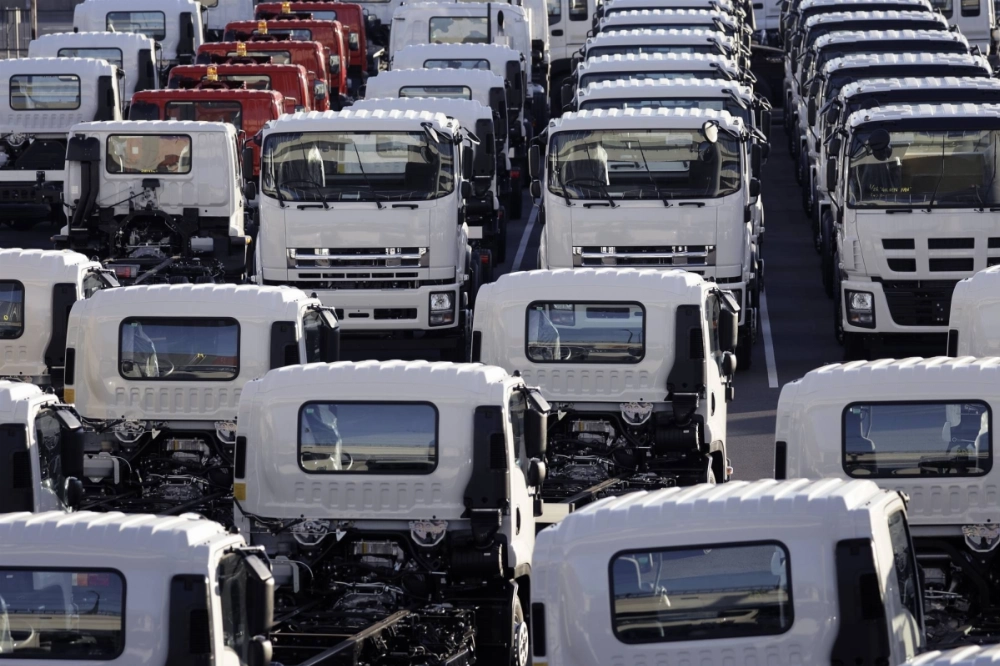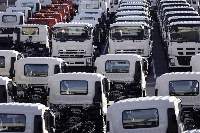Japan’s automakers slashed the prices of their models exported to the U.S. at a record pace, in a sign that companies are sacrificing profits to remain competitive as U.S. President Donald Trump’s tariffs hit cars.
Last month, the export price index for vehicles shipped to North America plunged 19.4% from a year earlier on a contract currency basis, the biggest drop in records going back to 2016, according to the Bank of Japan’s corporate goods price report Thursday.
The data add to signs that Japanese automakers are trying to avoid a major price increase to remain competitive in the U.S., even after Trump began to impose 25% auto tariffs in early April. The flip side of the move is it raises concerns over companies’ profitability and whether they can continue to keep raising wages — a key component of the BOJ’s sustainable inflation goal.
Thursday’s report also showed producer prices overall rose 2.9% from a year earlier in June, slowing from 3.3% in the previous month as the price of oil and steel declined.
BOJ Gov. Kazuo Ueda said last week he is closely watching whether the wage-inflation cycle will be maintained in the face of the U.S. levies, in order to determine the timing of the next rate hike. In addition to the auto and steel tariffs that are already in place, Trump on Monday announced that across-the-board tariffs on Japan will be raised to 25% starting Aug. 1.
While Japanese automakers including Subaru have announced some price increases, Japan’s strategy of not raising prices too much has shown up in other data. Car exports to the U.S., which make up about a quarter of U.S.-bound shipments, declined 24.7% by value in May, but only 3.9% by volume.



















With your current subscription plan you can comment on stories. However, before writing your first comment, please create a display name in the Profile section of your subscriber account page.